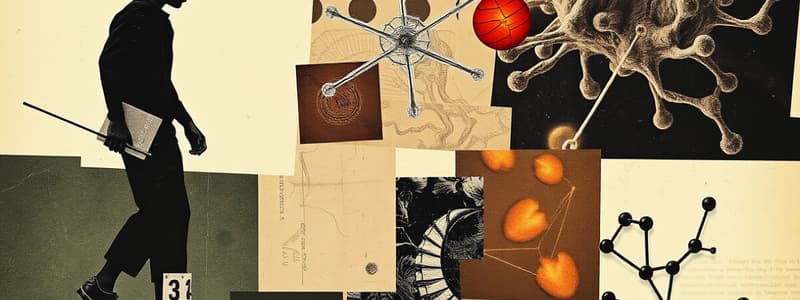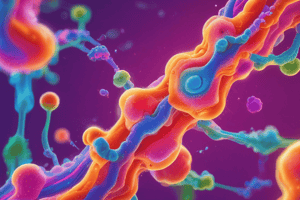Podcast
Questions and Answers
What is the significance of protein and peptide hormones being water-soluble in terms of their mechanism of action on target cells?
What is the significance of protein and peptide hormones being water-soluble in terms of their mechanism of action on target cells?
Their water solubility prevents them from crossing the plasma membrane, requiring them to bind to receptors on the membrane to initiate signaling.
Explain the role of the first messenger in the signaling process of protein and peptide hormones.
Explain the role of the first messenger in the signaling process of protein and peptide hormones.
The first messenger, which is the protein or peptide hormone, binds to specific receptors on the cell membrane to initiate a signal transduction pathway.
How does the generation of a second messenger like cAMP influence cellular activity?
How does the generation of a second messenger like cAMP influence cellular activity?
The second messenger, such as cAMP, amplifies the signal and triggers various changes inside the cell, including enzyme activation and gene expression.
Contrast the roles of first and second messengers in the hormone signaling process.
Contrast the roles of first and second messengers in the hormone signaling process.
What consequences might arise if the receptor on the target cell fails to bind to the first messenger?
What consequences might arise if the receptor on the target cell fails to bind to the first messenger?
Flashcards are hidden until you start studying
Study Notes
Hormones and Cell Signaling
- Protein and peptide hormones are water-soluble and cannot cross the plasma membrane of cells.
- These hormones act as first messengers, initiating communication between external signals and cellular responses.
- Hormones bind to specific receptors located on the plasma membrane of target cells, triggering intracellular signaling pathways.
- The binding event leads to the generation of second messengers, such as cyclic AMP (cAMP).
- Second messengers amplify the hormonal signal and facilitate various physiological responses within the cell.
- Key changes induced by second messengers include enzyme activation, which can influence metabolic pathways.
- Gene activation may also occur, leading to transcription of specific genes and subsequent protein synthesis, allowing for long-term cellular effects.
Studying That Suits You
Use AI to generate personalized quizzes and flashcards to suit your learning preferences.




